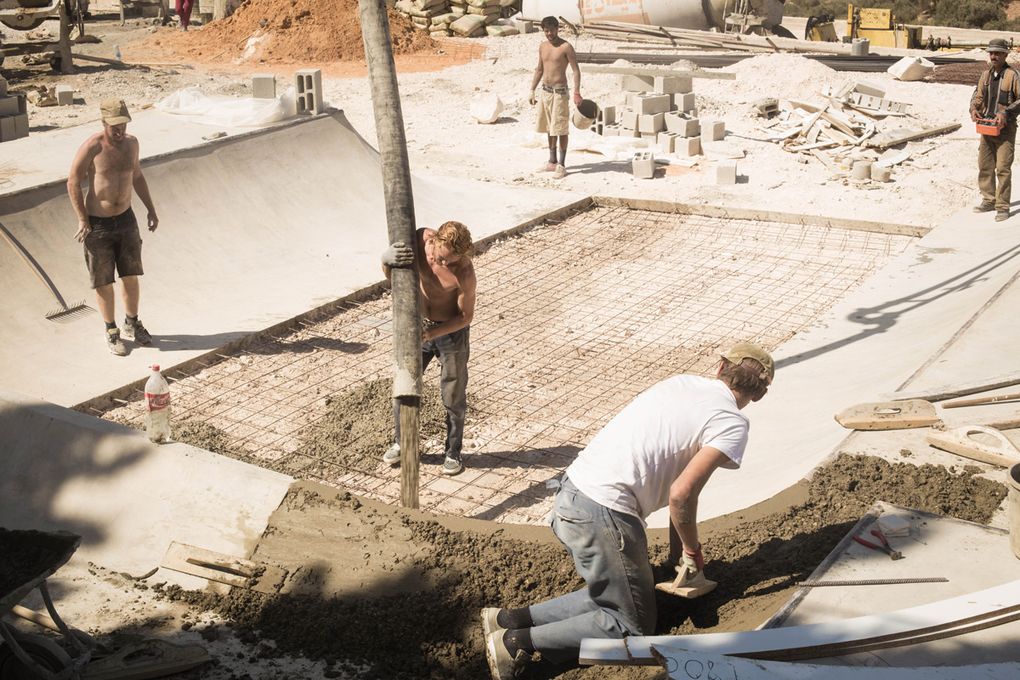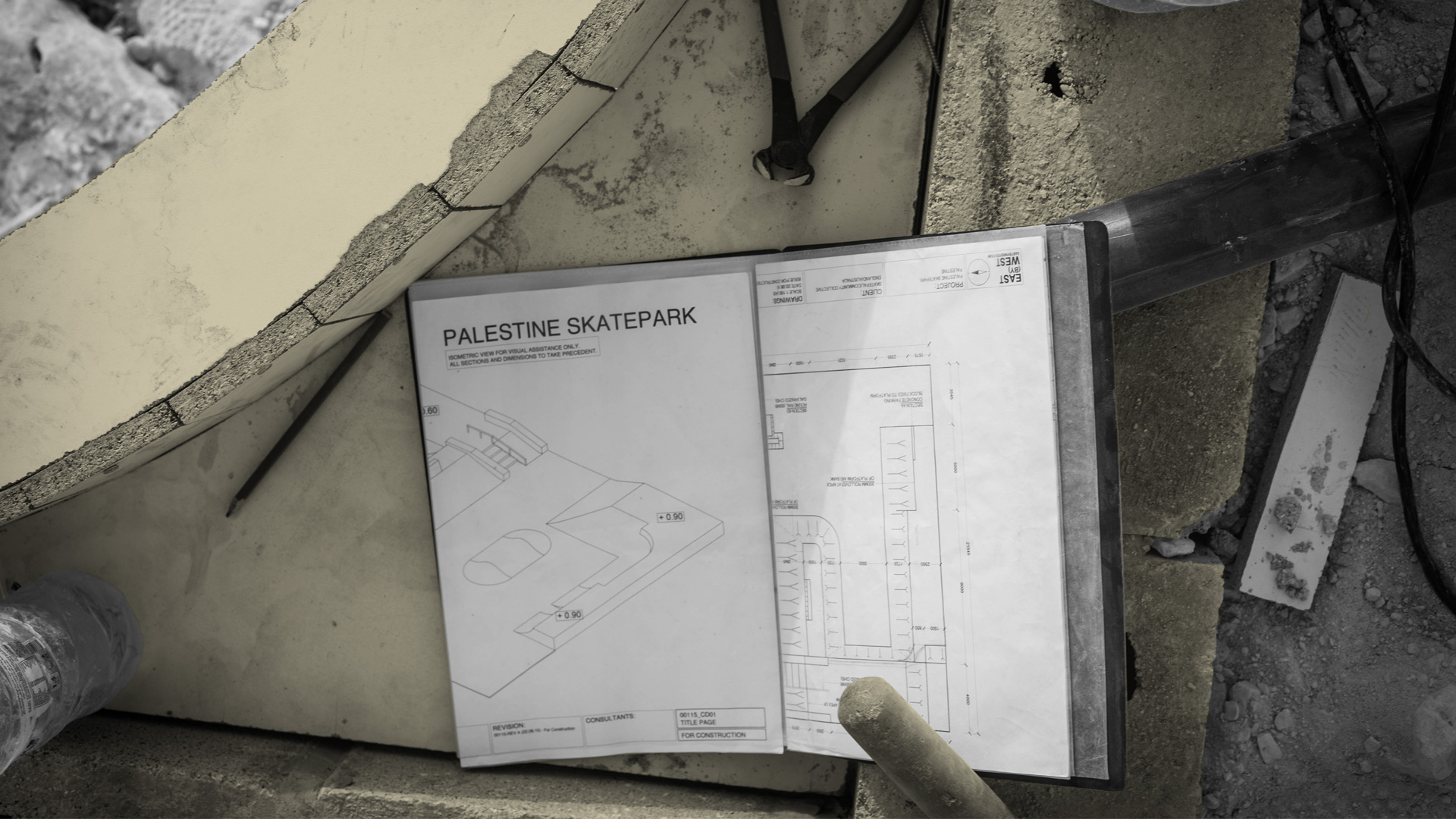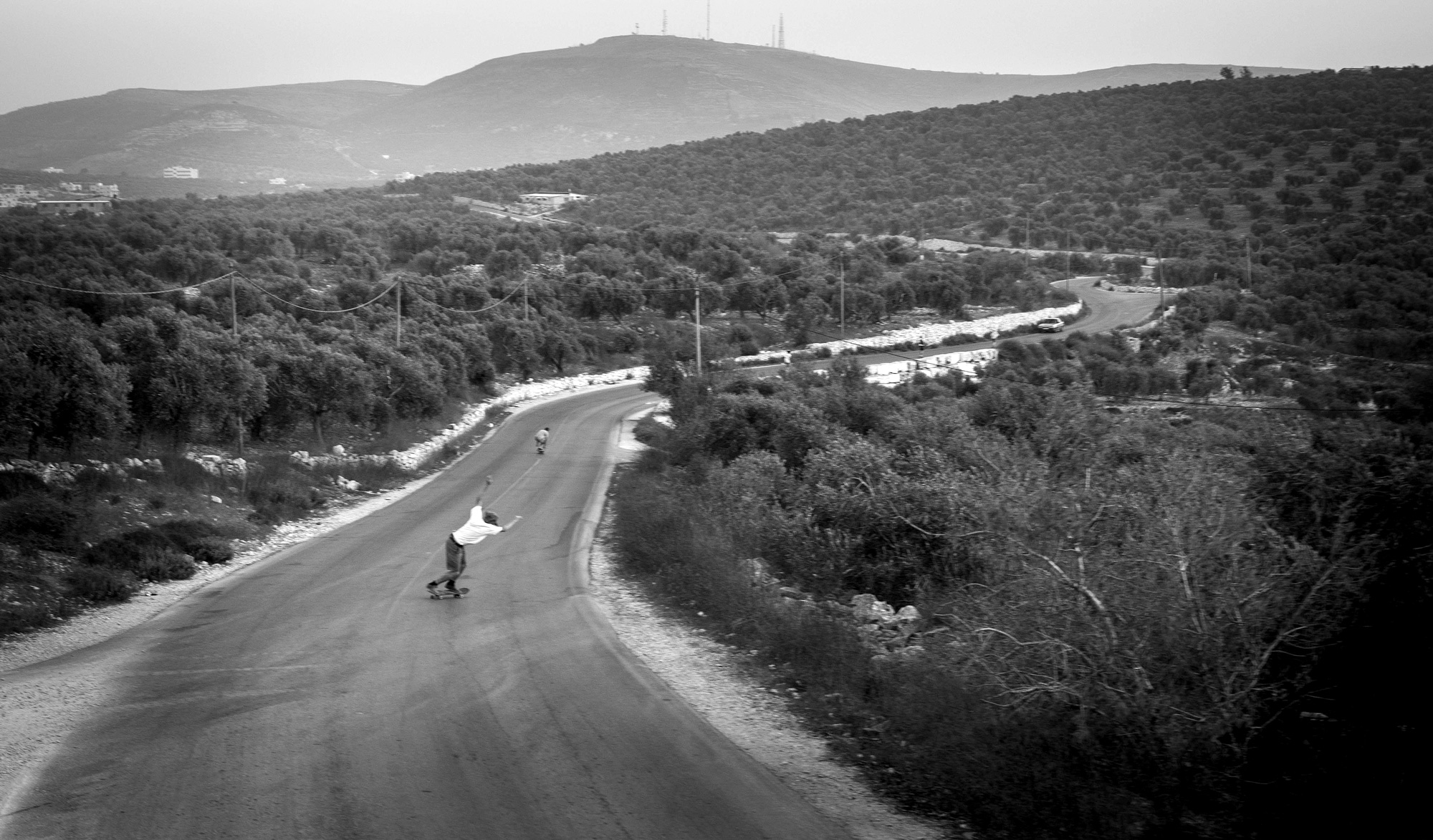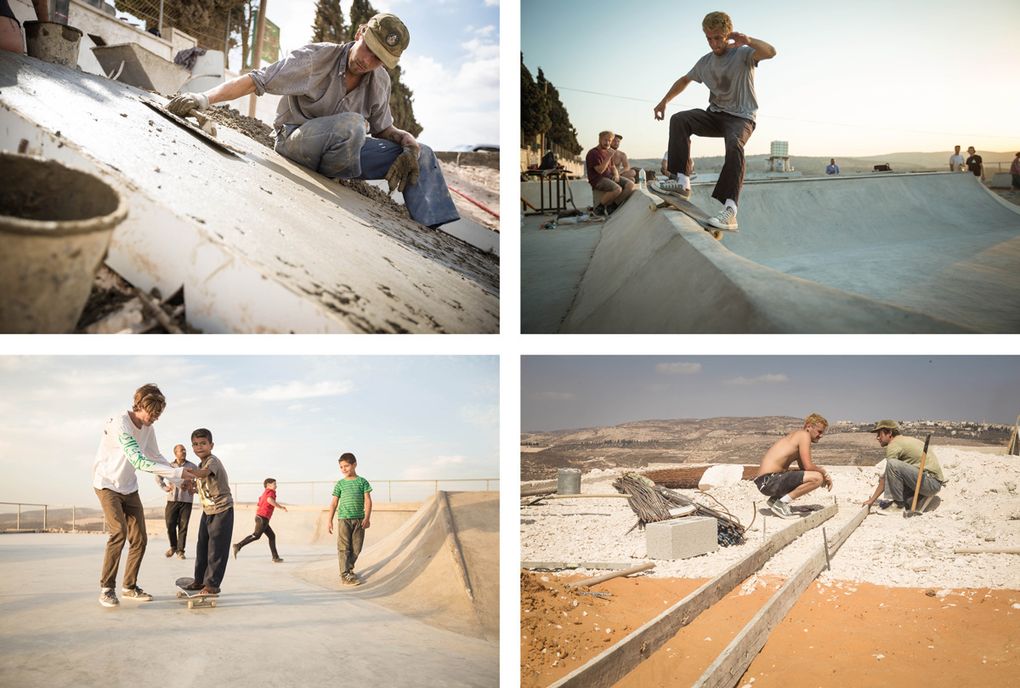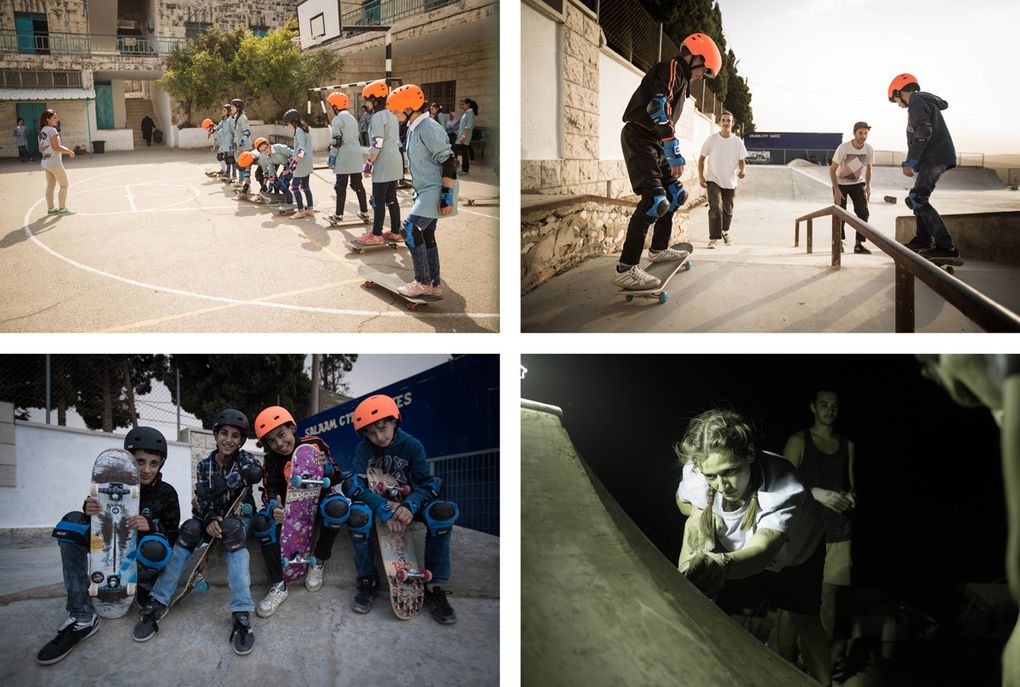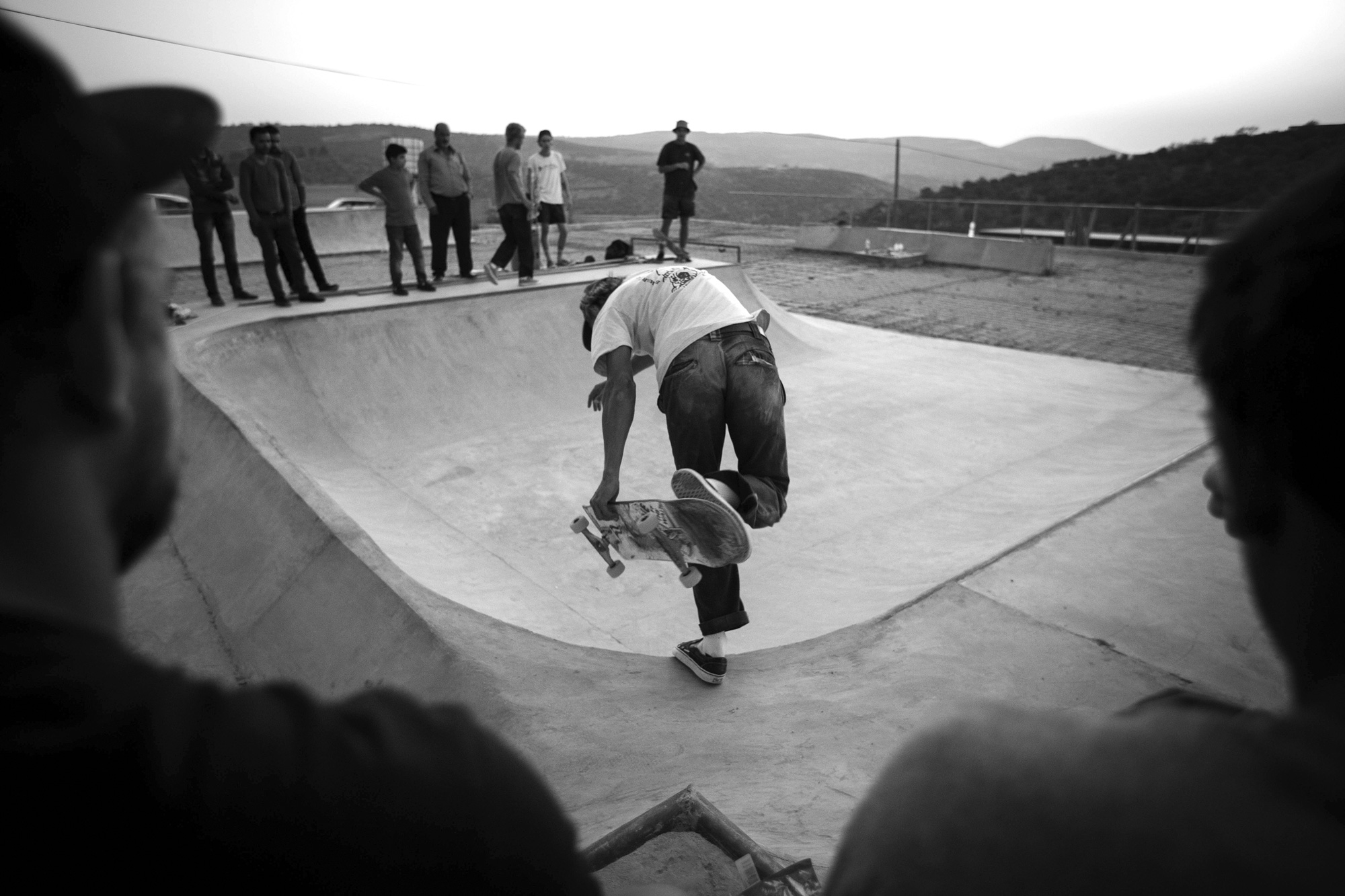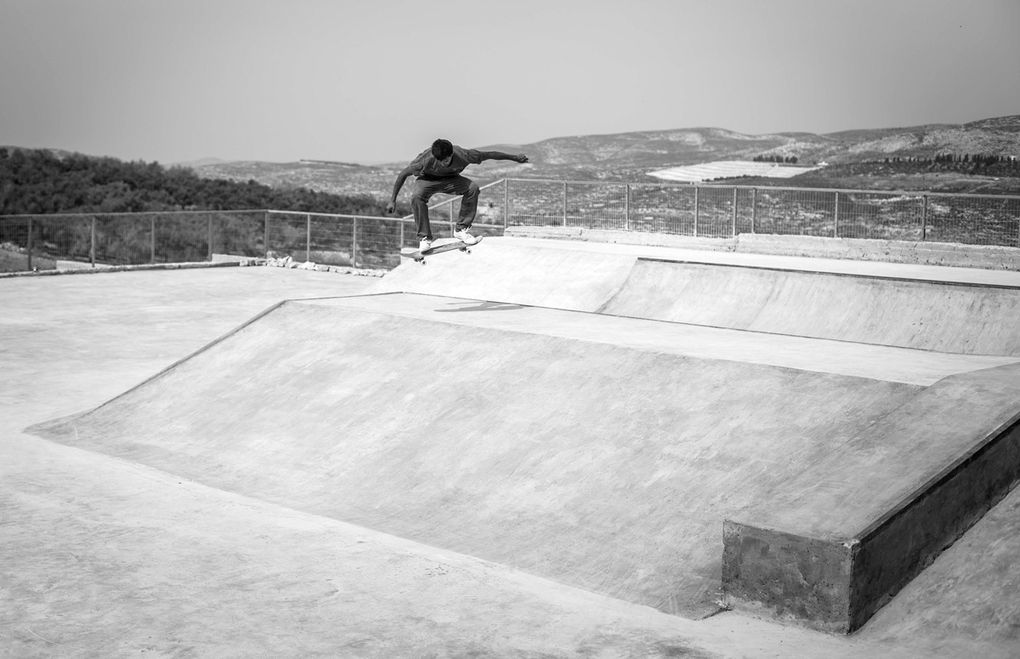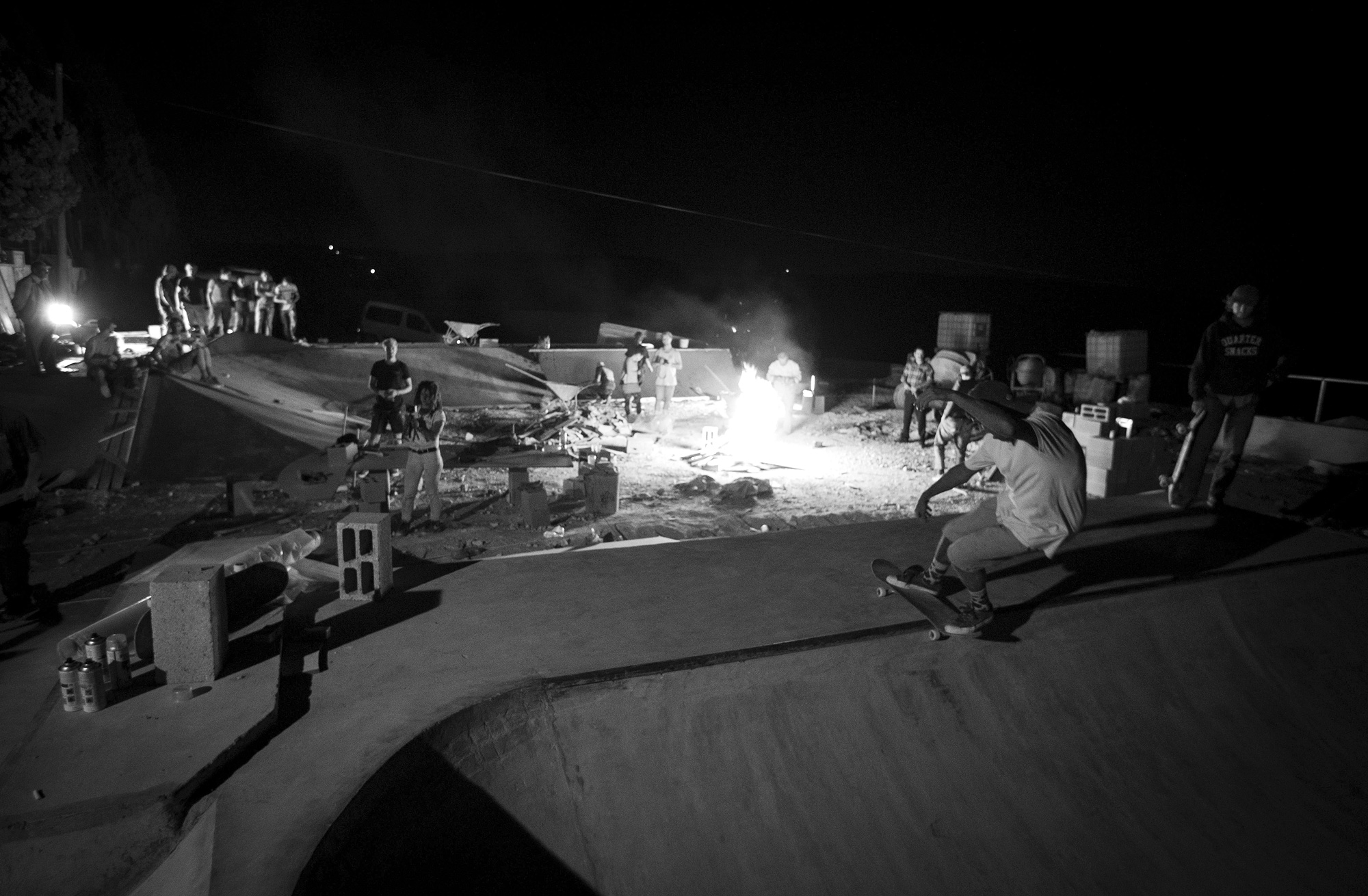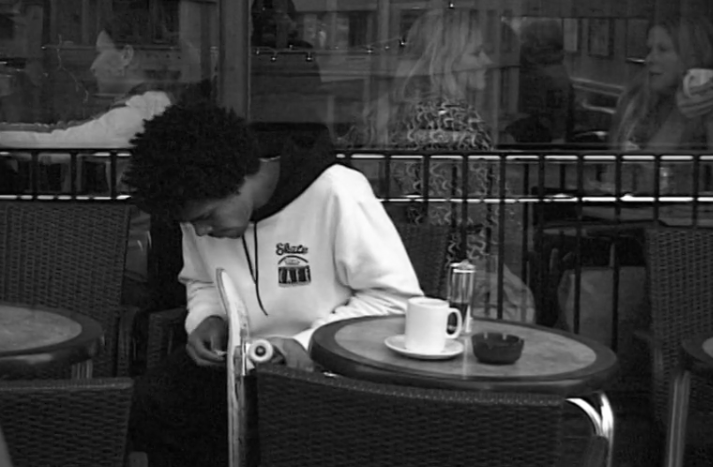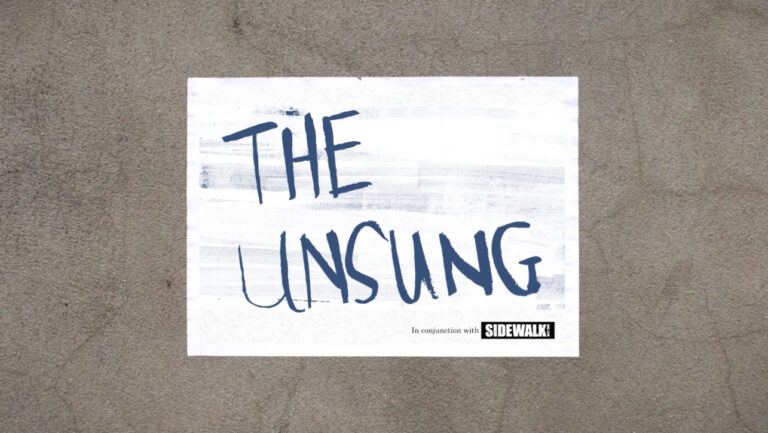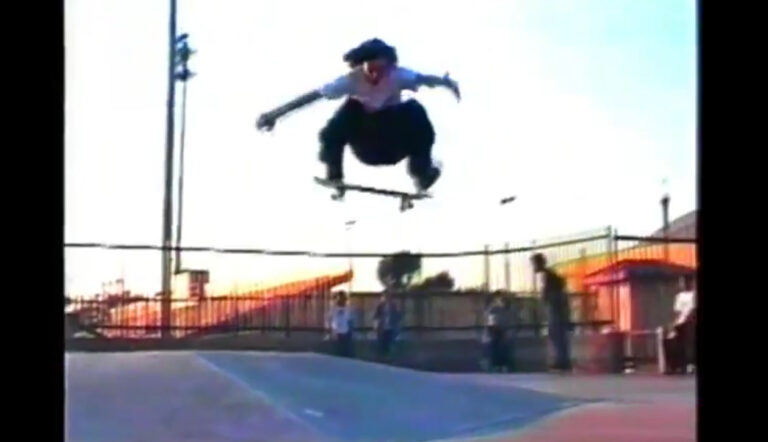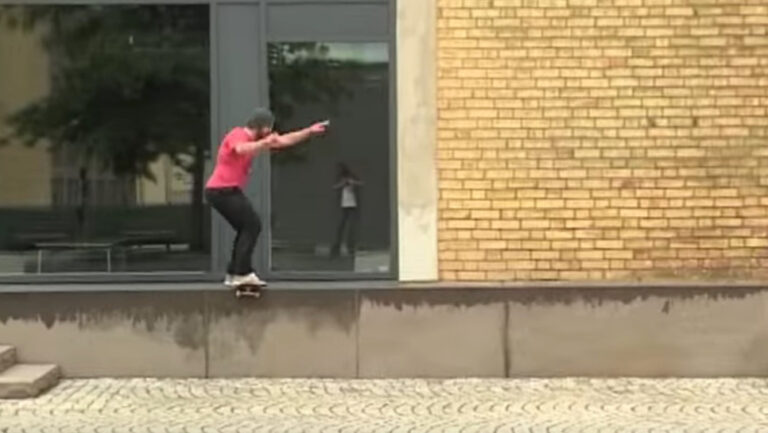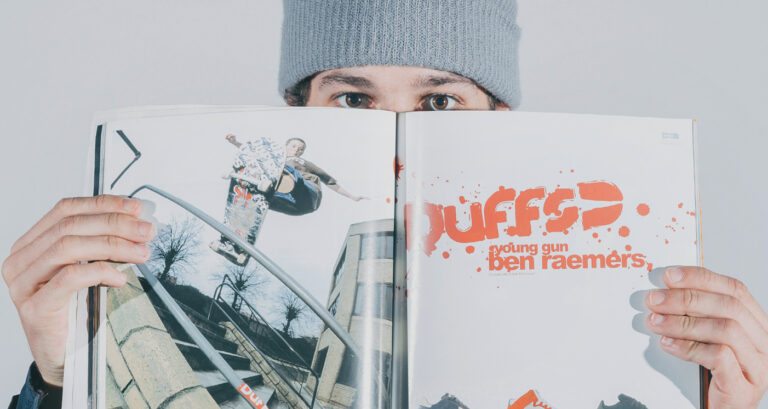Jerusalem is a crazy city, located just on the Israeli side of the wall. It’s unlike all the surrounding cities, and has both Islamic and Jewish residents living within close proximity. We walked to the park from Damascus Gate bus station, which is in the ‘Palestinian quarter’. There’s a stark contrast as you move from one part of the city to another. The Palestinian side of the city is bustling; it’s run down and chaotic but equally friendly and inviting. The Israeli neighbourhoods are very ordered, smart and clean. The price of everything is also drastically different from one part of the city to another. It’s like two different countries sitting side by side. The skate park we visited in Jerusalem occupies an interesting space within this conflict. One guy explained how it’s one of the only areas of the city where you don’t get that much tension between people. The skating seems to take priority and everyone skates alongside each other.
It is important to mention that one of the goals of the project is to get both boys and girls skating side by side from day one, and the presence of two women within our crew, also skateboarders, was an intervention in itself. “Women don’t/shouldn’t/can’t work like this” was a popular phrase, said with varying degrees of sincerity and jest. However most people were also extremely open and flexible, and they got used to us, and were often very supportive. One woman we got to know, the mother of a family we spent time with, visited the site with her husband and started to help move breezeblocks in what was a wonderful moment of solidarity and kindness.
Many of the children in Asira were interested in learning to skateboard, and we were often visited by groups of young boys, who would cycle up to the building site and who couldn’t wait to have a go. The girls in the village were also very interested, but because of the social and cultural landscape of Palestine, we recognised that young girls have a lot more barriers to participation. So, we began teaching classes at the girl’s school before the park was built, in the hope that with some skills under their belts and a desire to keep on practising, that they may be able to keep visiting the skate park and to keep on rolling. Some of our classes and experiences teaching the girls are documented over on Girl Skate UK.

As the park progressed time became a blur. New members of the crew arrived and old members left, but the strength of the squad remained as strong as ever, and we got faster and more efficient at building as a team every day. As some obstacles started to get completed, our messy little building site began to look like a real skatepark. We could have skate-breaks in between jobs and people got thirsty for the finish line. Although there were a few more frustrations with deadlines being pushed back due to public holidays and materials arriving on time in the last couple of days, spirits were high and everyone was itching to skate. Seeing the final bit of floor slab poured was an unforgettable experience.
